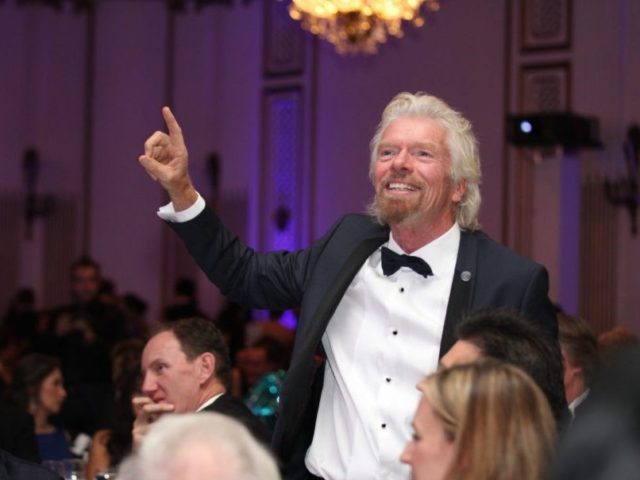Businesses should “work together in common cause” to spread a “unified message” of welcome and acceptance to refugees and migrants, an organisation co-founded by Richard Branson has said.
Refugees and migrants have been dubbed an “opportunity for humanity” in a report by The B Team, an initiative co-founded by Virgin entrepreneur Richard Branson and Jochen Zeitz, founder of the Zeitz Foundation for Intercultural Ecosphere Safety.
The report urges the business community to “help resolve the refugee crisis” by offering jobs and training to migrants, donating finances, time and resources to the United Nations and NGOs working with refugees, and advocating for “respectful societal and governmental action.”
Businesses are told to work to “change the narrative” on migrants and refugees from that of being a “challenge” to one of “opportunity”, as well as working with governments, civil society and other leaders “to reinvent the system and ensure that there is a structured and tangible global support system for refugees and migrants.”
Above all, the report urges businesses to “be human”, suggesting: “Personally lead by example and never accept the unacceptable. Stand up for refugees and migrants and call out unethical behaviour.”
The B Team bills itself as a “not-for-profit initiative formed by a global group of business leaders to catalyse a better way of doing business, for the wellbeing of people and the planet.” It states on its website that “Plan A” – doing business for the profit motive – is “no longer an option”. Rather, it advocates for “Plan B”, that is, taking “collective action” to enact societal and environmental change.
The group believes that in doing so it can positively influence the economy, for which the migrant crisis is a case in point.
Highlighting that there are close on 21.3 million refugees worldwide, approximately half of whom are children, the organisation believes that welcoming them to western countries is the key to economic prosperity that works for all.
“There clearly are significant political and social welfare challenges which must be addressed with great urgency and purpose,” a spokesman for The B Team said. “But it’s imperative that we also remember that in order to resolve the crisis, we must find ways to recognise and celebrate the intrinsic value and contributions which refugees, properly supported, offer our communities and businesses.”
However, evidence from across Europe suggests that the migrants will not prove to be the economic assets that the B-Team group believe they will be.
A survey by the Frankfurter Allgemeiner Zeitung in July of this year found that the majority of the top 30 companies on the German stock exchange (DAX) said they had been unable to employ any of the new arrivals, as the migrants lacked the necessary qualifications needed to fill any of their roles.
Although the companies surveyed employ four million workers, FAZ reported that between them, they had only hired 54 migrants; 50 of whom were employed by the post office. Two other companies had hired two each.
Across the country, unemployment among migrant populations is three times higher than that of native German populations.
The situation is even more stark in Sweden, where unemployment among the native population is low by international standards, at just 4.2 percent. Yet migrant unemployment rates in the country run at an average of 21.6 percent across the country.
A separate survey in Germany found that, far from being the architects and engineers billed by pro-migrant groups, 74 percent of newly arrived migrants have no qualifications whatsoever and can only fill menial roles.

COMMENTS
Please let us know if you're having issues with commenting.